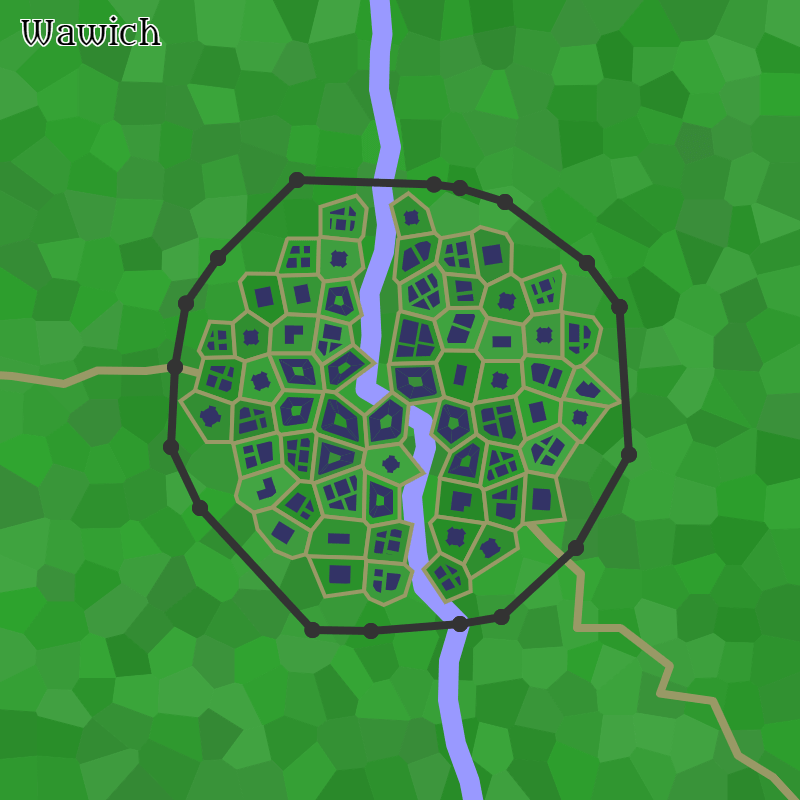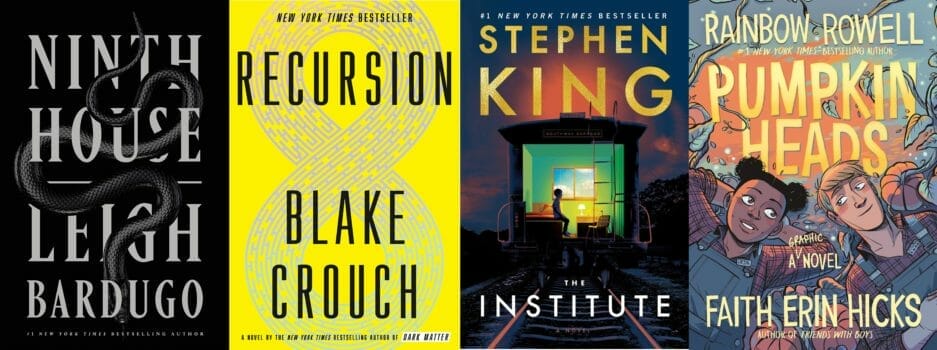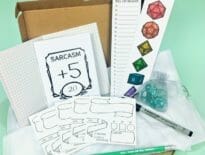Welcome home.
This is Audio EXP for the 14th of December 2019, and the title of this episode is ‘Sleeping giants and flame wars’.
[The following is a transcript of Audio EXP: #22]
[Stitcher | Spotify | Apple | Google]
Phew.
We made it through Friday the 13th, although it wasn’t pleasant for some of us.
I’m glad you did and that you’re here.
Let’s stick with curses and all things spooky as we open this Geek Native highlights podcast. Let’s talk about The Night of the Living Dead.
CMON, once known as Cool Minis or Not, and now a boardgame powerhouse, has a Zombicide-powered Night of the Living Dead on Kickstarter. You have to be quick if you want to back. It went live a few days ago. It only has a few days left to live.
Why the short campaign? I can’t say, but they’ve raised more than a quarter of a million, so the tactic worked.
Did you know Night of the Living Dead is both the film credited with establishing the modern image of a zombie and a film which never once used the word zombie?
Okay, I think many people knew that. I didn’t know about the copyright drama around the film and an update in the Kickstarter talks all about it.
The original film is out of copyright, in fact, it was never in copyright due to an error. It’s a public domain film.
What happened? Originally, the film was going to be called Night of Anubis, and when they rebranded it to Night of the Living Dead, they forgot to put the copyright notice directly on the film prints. Back then, that failure to do so meant the film was not protected.
Does that mean you can go ahead and use it? Nope. In 2016 the Museum of Modern Art decided the film was important enough to preserve. That restoration project, done with artists working on each frame, created a new version which is in copyright.
Also, and here’s the kicker, a company called Image Ten controls the rights to the images and likenesses of the main cast. You can’t go ahead and use them.
If you want the full story, you’ll find the link in the show notes or in Geek Native’s transcript on the blog.
This week we also saw Ghostbusters come back from the dead in a trailer for Afterlife.
I think it’s great.
It’s very hard not to get Stranger Things vibes from it. In part that’s because Finn Wolfhard, an actor who plays one of the Stranger Things kids, has a dominant role in the trailer. Also because we’re dealing with mysterious and spooky going-ons in an otherwise sleepy town.
I don’t think this is a bad thing. I think it would be pretty hard to watch a kids investigate the unnatural movie without inviting comparisons with Stranger Things. All the Ghostbusters team have done is go with the flow. I’m looking forward to the movie.
As with last week, we’ve had a host of great looking trailers, some of which Geek Native covered, some of which escaped me. If there are any you recommend, then please let us know over on the blog.
There’s one more trailer that’s worth talking about it, and that’s Dark Alliance. Wizards of the Coast have a new D&D computer game coming out.
If you listened to Audio EXP a few weeks back, you might remember the news of Wizards of the Coast buying a computer game company called Tuque breaking. Tuck? Too-queue? I dare say I’ll find out how to pronounce in time. Anyway, this is Tuque’s game.
The trailer is pretty hardcore. It’s accompanied by heavy metal, much of it is shot as if someone had stuck a GoPro on the end of their sword and then charged into a melee.
Dungeons & Dragons: Dark Alliance is also the first computer game to have Drizzt and his companions as the headline characters.
It’s a multiplayer action game. I suspect it’ll have a very different feel to Baldur’s Gate III, which is also out next year.
If I had to pick between the two, having played neither, it’s an easy choice. I’d go with Baldur’s Gate III. I much prefer the in-your-own-time RPG vibe of that game than the find-a-friend and perfect your button combos of Dark Alliance.
I’m making assumptions here, of course. I suspect that in 2020 we’ll see lots more game-pass style games from Google Stadia and Microsoft. It’s possible that we will get both as part of a subscription package and will not have to choose.
There’s another interesting overlap of the worlds of tabletop RPGs and computer tech this week that’s made Audio EXP’s highlights. You can file this one under the “sleeping giant” part of the headline too.
Amazon and Paizo Publishing have teamed up.
The result?

It’s a voice game. It also means the idea of playing with professional voice actors has just become far more achievable. In this case, the voice actors are the NPCs you encounter in the Scoundrels in the Spike adventure. Alexa acts as GM.
Okay, I know. Alexa and Amazon’s technology isn’t good enough to be an actual GM. Not yet. However, this is as much an RPG as a computer game is. Given that you’ll have to speak out aloud, I imagine it could feel far more immersive too.
This is not a one-off project either. Paizo and Amazon have plans for more, albeit pay-for audio games. Earlier this year, River Horse beat Paizo to the punch and released their own audio RPG on Alexa. It’s called Void Warper and most of it is free to play.
In Void Warper, you only need to spend cash on travelling to some parts of the game world.
I know audio games will not be for everyone, but I’m excited to see where this new evolution of RPG technology takes us.
So, let’s talk about the other story in the sleeping giant category. This week, Osprey Publishing published their first two RPGs.

If you’ve not heard of Osprey before, that’s okay. Until this week they’ve mainly been active in board games. They were at the UK Gaming Expo this year, which is where I met them, with their Jonathan Strange & Mr Norrell board game laid out for people to try.
You see, Osprey are part of the Bloomsbury group of companies. Bloomsbury is the company who has the publishing rights for titles like Harry Potter and Sarah J Mass’s Throne of Glass series.
That’s a huge publisher.
I think this puts Osprey higher up the negotiation chain than most other games companies.
It’s easy to imagine that when securing the rights to a big, or potentially big, new fiction series, Bloomsbury could sweeten the deal by offering to do an RPG for it too. Or, if they felt the new license was already on the expensive side, they could now put in the condition that they also get the RPG rights to the title.
I talked to Philip Smith, Head of Osprey Games, about this. He didn’t deny it. Instead, he wanted the company to be known for the quality of the games they make. Not for the doors that Bloomsbury opened for them.
That was a good answer.
Oh, and Osprey’s first two RPGs are both games jumping from indie PDF to Osprey physical product. There’s Scott Malthouse’s Romance of the Perilous Lands, which is set in a mythic Britain, and Graham Rose’s Paleomythic which is set in the stone age.
While we’ve been talking about sleeping giants, let’s pick right now as the time to highlight a small and promising indie. The winner of the December RPG Publisher Spotlight here on Geek Native is a company called Mage Hand Press. They’re just wrapping their Kickstarted project, a D&D in space game, called Dark Matter.
Go check them out.
As usual, I hope to get a full-length feature on Mage Hand Press on the blog before the end of the month.
If you’re a Geek Native patron, then you can vote on which publisher will win the Spotlight placement for January. Pop over to Patreon to cast that vote.
Mage Hand Press has clearly made some right choices. Not all indie publishers too. We had an all-mighty row on Twitter this week, as members of the RPG community were misinformed and started to sling mud.
It’s a bit messy, but I think we might bring some clarity if we dig into the row over a game called Police_Procedure in this Audio EXP.
While almost all of their staff were off-site and at PAX last weekend, DriveThruRPG received complaints from customers saying that they had found a game all about beating up innocent people, queer people and people of colour.
DriveThruRPG paused sales on the game and started to investigate.
We won’t know what the outcome of that investigation would be, because events overtook things, but it would have been interesting.
The premises of Police_Procedure is that the cops are corrupt and that’s why gameplay involved touring around as a bent copper and beating people up.
You could argue that that’s a satirical game, or a political one, and I think you could easily argue the game doesn’t encourage beating up innocents at all and that it’s an outcry against it.
However, the publisher, Transfelinism made… an odd choice.
They changed the description of Police_Procedure so that it read as if it was an official statement from DriveThruRPG. That statement said the game had been suspended because it contained hate speech against an oppressed minority and that minority was the police.

Clearly, that’s not what had happened. At no point did DriveThruRPG say they considered the police an oppressed minority.
Sadly, that screenshot and an accompanying blog post about freedom of speech were seeded into Twitter. People thought they saw evidence that DriveThruRPG were calling the police an oppressed minority.
Some people were confused. Some people acted more angrily. In fact, a member of the DriveThruRPG team was doxxed. Their phone number was shared with the public. They had to suffer a barrage of texts describing them as a fascist and other insults.
Meanwhile, according to DriveThruRPG, their systems were then used to make it look as if other Transfelinism games had been banned, and customers were contacted to spread the misinformation.
We’ll never know what DriveThruRPG’s moderators would have made of Police_Procedure after taking the time to check the game out because the manipulation of events and the doxxing of staff overtook things. They banned Transfelinism for slander.
What a mess. It was good, though, to see many people who had tweeted in protest against DriveThruRPG either delete or update their tweets when the truth came out.
Sometimes it can be hard to admit when you’ve been tricked. Flame wars help no one, though, and so anything you can do to put them out is always the right thing to do.
Right, let’s find a batch of more positive news.
Here’s one. If you need a random village, town or even a whole city in a hurry for your fantasy RPG then check out Donjon’s generator.

You just have to load a webpage. It’s free and useful. You’ll get a basic map, which you can customise with all sorts of options. You’ll also get NPCs and interesting locations for people to visit.
Over the years, Geek Native has found quite a few resources for generating maps. If Donjon isn’t for you, then the related reading links at the bottom of the post may help, but I also made sure to point out some alternatives in the intro.
You know the drill, links to the discovery post are in the show notes.
Other interesting headlines this week include Green Ronin publishing The Expanse RPG’s first official adventure. As it happens, Abzu’s Bounty is actually six interlinked adventures.
That was a pretty popular story on Geek Native this week. I think that’s an indication that The Expanse is still a top-rated sci-fi show.
Goodreads released their results of what the top-rated books, including comic books, of the year, are.
I’m a geek, so I copied all that data into a spreadsheet and tried to analyse the best geeky reads of 2019.
I looked at fantasy, horror and sci-fi books as well as graphic novels. I can tell you that fantasy had far more votes than any of those other genres with well over 300, 000. Sci-fi got the second spot with over 200,000.

According to Goodreads the top fantasy book of the year is Ninth House by Leigh Bardugo, the top sci-fi book is Recursion by Blake Crouch, the top graphic novel is Pumpkinheads by Rainbow Rowell and Faith Erin Hicks and the top horror story is The Institute by Stephen King.
While the Horror category got the fewest votes in general, Stephen King’s The Institute got far more votes than any other book in the genres I looked at. Twice as many.
Speaking of genres, there’s a new Genre Police article out from Ben this week. This time we’re looking at how to build Rome, or, at least, a Roman-style campaign. However, this Genre Police article is a little different. It suggests that ‘Roman’ isn’t a genre and that you can use previous Genre Police rules, in combination, to create a campaign world that feels Roman.
So, as Genre Police head towards their 50th article, this one shows you how can you splice them together in different ways to create an even broader scope of games.
Second from last and in the spirit of games with broad scopes, over on the DM’s Guild, a group of gamers called Elder Brain have released Year of Rogue Dragons.
Do you want to play D&D as a dragon? As an evil dragon? This is the Forgotten Realms module for you.
Lastly, before I sign off for another week, let me be a cheeky scamp and point out that EN World are asking for podcast nominations. I thought that miiiight interest you. Maybe there’s a podcast you listen to that you could nominate?
And on that note, thank you for listening, and we’ll catch up soon.
Can you help expand this article? Scribble down some thoughts in the discussion area below.

